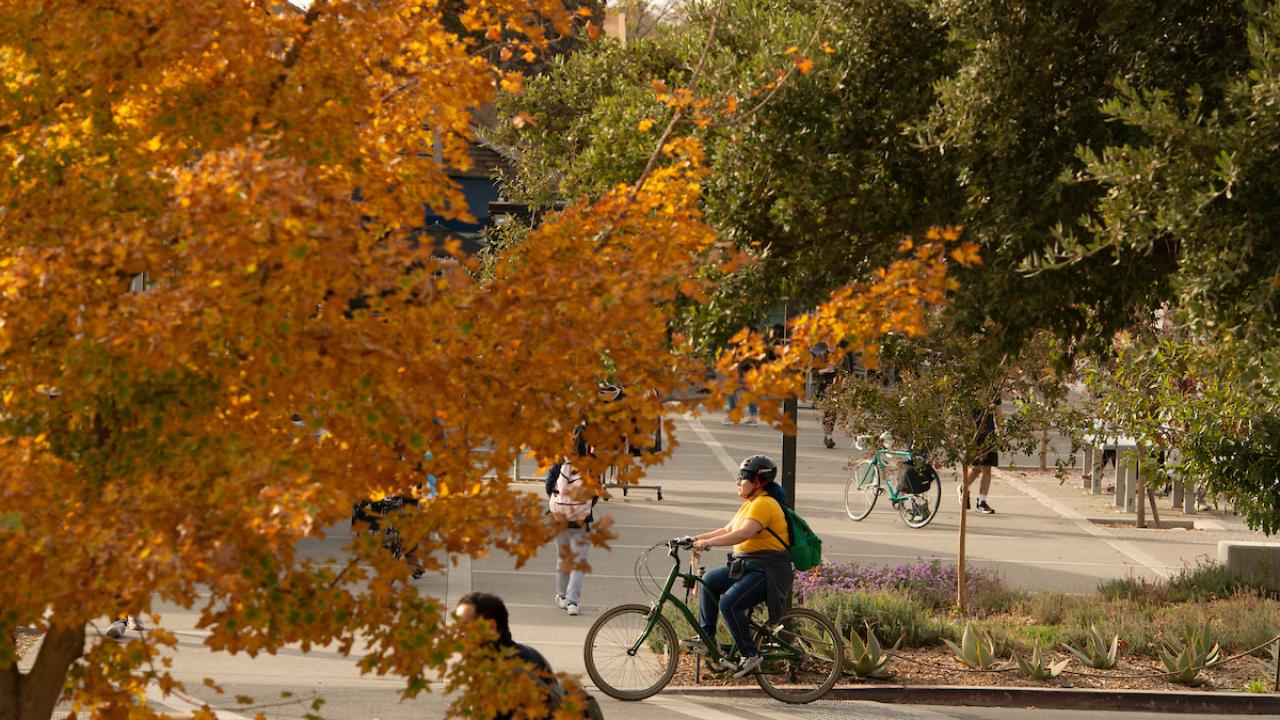
Helmet Hair Don't Care
Helmet Hair Don't Care is a campus-wide bike safety initiative that will provide bike safety training and free bike helmets to students, staff, and faculty.
Introduction:
Biking is an integral part of the built environment at UC Davis and as a Platinum Bike Friendly University, UC Davis is an ideal place to choose biking as a preferred method of transportation. However, we have alarmingly low bike helmet usage rates, and bike crashes frequently occur. Therefore, Helmet Hair Don’t Care (HHDC) is launching a new model that includes the entire campus community and aims to make active transportation safer by providing access to free and low-cost helmets and bike education. The new model will require students, staff, and faculty to complete the short bike safety training prior to receiving a free helmet. Alternatively, the same helmet will be sold for $10 to increase access to affordable and safe helmets.
Outcomes:
Short-term outcomes:
- Increase access to bike helmets
- Increase in ability to engage in safe biking behaviors
Long-term outcomes:
- Increase in helmet use
- Decrease in bike crash occurrences on campus
Opportunities for Involvement:
Be a Helmet Hair Don't Care advocate by:
- Sharing information about the Helmet Hair Don't Care Pledge with your peers.
- Posting about why you wear a helmet on social media #helmethairdontcare.
- Proudly wearing your helmet when biking on campus and in the community.
If you'd like to get more involved in Helmet Hair Don't Care efforts, please contact Shantille Connolly at shathompson@ucdavis.edu.
Recent Milestones:
Helmet Hair Don't Care launched in 2016 after a year-long needs assessment to determine why students weren’t wearing helmets. The three main barriers identified for helmet use were cost, appearance, and peer use. When HHDC launched in 2017, 5.7% of UC Davis undergraduates reported wearing a bike helmet mostly or always while the national average was around 35%. After four years of providing over 3,000 free helmets to students, bike helmet usage rates increased by 58%. UC Davis rates are still below the national and UC systemwide average but have continued to increase every two years according to the biannual National College Health Assessment.
Project Lead:
Shantille Connolly, MPH, CHWC, CHES
Health Promotion Specialist, Physical Well-Being
Health Education and Promotion
UC Davis Student Health and Counseling Services
shathompson@ucdavis.edu
